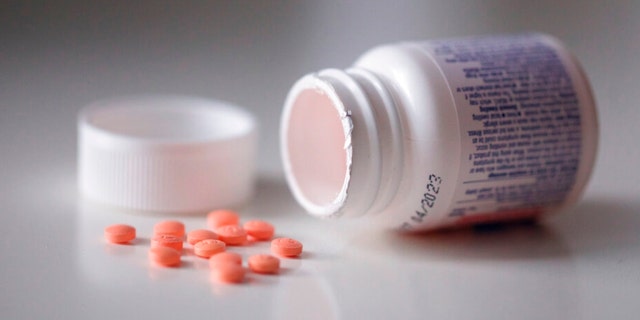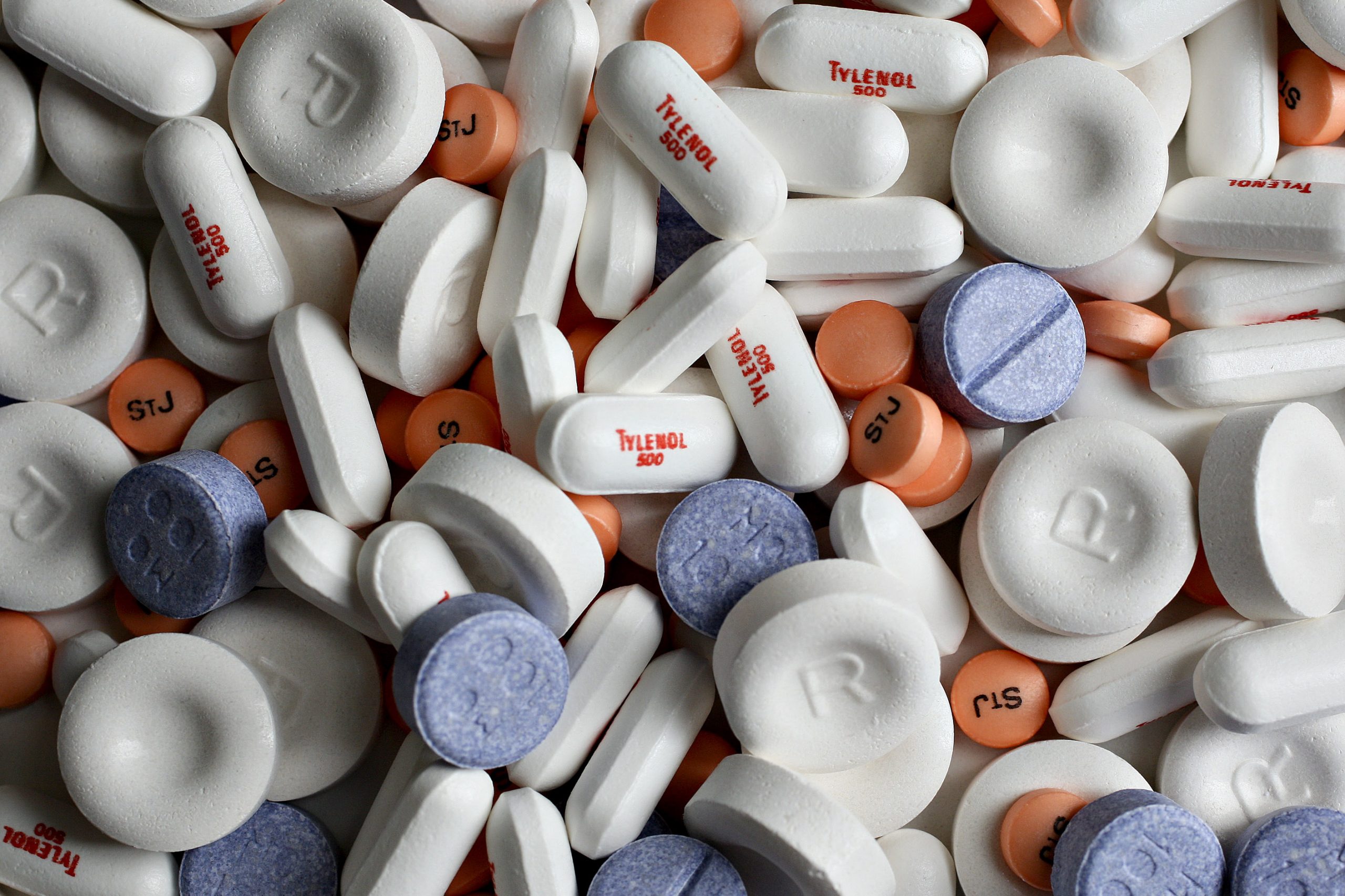Does a daily aspirin help over-60s avoid heart disease and stroke? Expert recommendations just changed
NEWYou can now listen to Fox News articles!
Daily aspirin to prevent heart disease and stroke, also known as cardiovascular disease (CVD), is no longer recommended for people over 60, according to new guidelines from the US Preventive Services Task Force (USPSTF) released Tuesday.
The national expert panel released a statement report that reversed its standard guidelines citing a slightly increased risk of internal bleeding after taking the drug daily. The report states that although aspirin reduces the risk of cardiovascular events, it increases the risk of gastrointestinal bleeding, intracranial bleeding and hemorrhagic stroke.

This August File photo from December 23, 2018 shows an arrangement of aspirin pills in New York. (AP Photo/Patrick Sison, File)
“Based on current evidence, the task force advises people aged 60 and over not to start taking aspirin to prevent a first heart attack or stroke,” said the group’s vice president. work, Michael Barry, in a press release. Barry, who is also a professor of medicine at Harvard Medical School and a clinician at Massachusetts General Hospital, added: “Because the risk of internal bleeding increases with age, the potential harms of aspirin use outweigh the benefits in this age group.”
NEARLY 200 MYSTERY CASES OF LIVER DISEASE IN CHILDREN: OFFICIALS
The USPSTF’s recent statement comes nearly two decades after the Food and Drug Administration (FDA) recommended that aspirin not be taken to prevent a first heart attack or stroke.

This Friday Oct. 15, 2021 photo shows an aspirin bottle in the Brooklyn borough of New York. (AP Photo/Emma H. Tobin)
According to the FDA website, aspirin is an over-the-counter pain reliever that is commonly used for the prevention of blood clots, heart attacks, and other conditions due to its ability to reduce the clotting action of platelets. blood. But the federal agency said the same drug properties that help prevent blood from clotting can cause unwanted side effects, such as stomach bleeding, brain bleeding, kidney failure and others. types of strokes. The website stated: “Daily use of aspirin may be beneficial if you have heart or blood vessel disease, or if you have signs of poor blood flow to the brain. But only a doctor can tell you if the The risks of long-term aspirin use may outweigh the benefits.”
Although the USPSTF report did not recommend a daily dose of aspirin for people age 60 and older, it did recommend daily aspirin use for people age 40 to 59 with an estimated risk of 10 % or more of cardiovascular diseases that are not at risk. for bleeding and who see a doctor.
STAYING HYDRATED CAN REDUCE RISK OF HEART FAILURE, STUDY SAYS
The expert panel report said: “The decision to initiate the use of low-dose aspirin for the primary prevention of cardiovascular disease in adults aged 40-59 years who are at 10 % or more over 10 years should be individual. Evidence indicates that the net benefit of aspirin use in this group is small. People who are not at increased risk of bleeding and who are willing to take low-dose aspirin daily are more likely to benefit.
John Wong, a member of the task force, said in a press release: “People between the ages of 40 and 59 who have no history of cardiovascular disease but are at higher risk may benefit from starting take aspirin to prevent a first heart attack or stroke.” Wong, who is also a professor of medicine at Tufts University School of Medicine, also said: “It’s important for them to decide with their healthcare professional if starting aspirin is right for them because daily use of aspirin aspirin can cause serious harm.”

Pharmacy pain medicine.
(John Greim/LightRocket via Getty Images)
According to the report, cardiovascular disease accounts for more than 1 in 4 deaths and is the leading cause of death in the United States. They also said that about 605,000 Americans have a first heart attack and about 610,000 have a first stroke each year.
The committee also said these revised recommendations are not for people who have had a stroke or currently have heart disease, or who are already taking aspirin. The report says these patients should speak with their health care provider about their particular case.
CLICK HERE TO GET THE FOX NEWS APP
“We want to emphasize that these recommendations focus on starting aspirin to prevent
a first heart attack or stroke. Anyone who is already taking aspirin and has questions about it should speak with their healthcare professional,” Wong said in the statement.
#daily #aspirin #over60s #avoid #heart #disease #stroke #Expert #recommendations #changed







